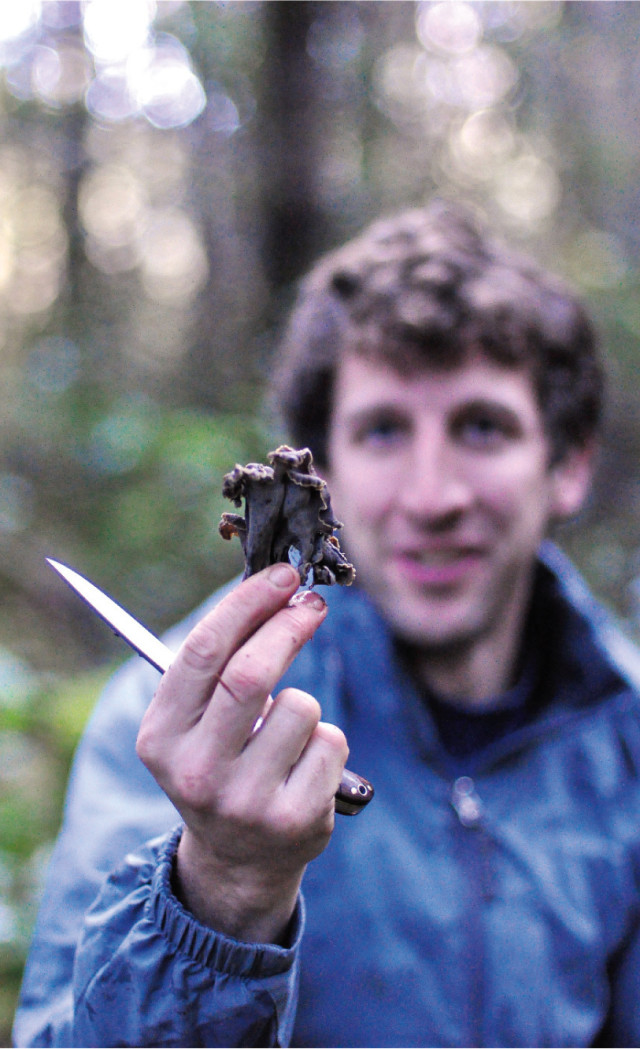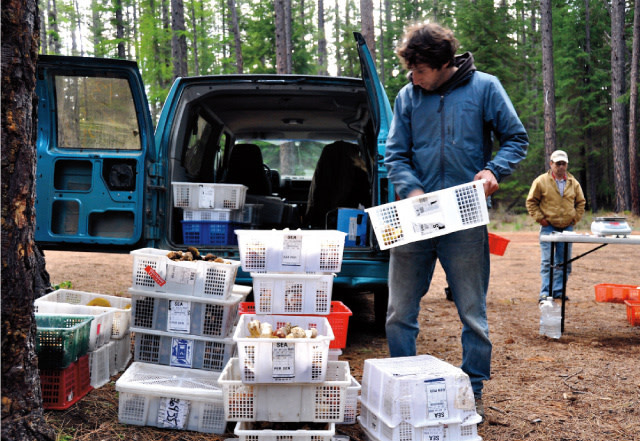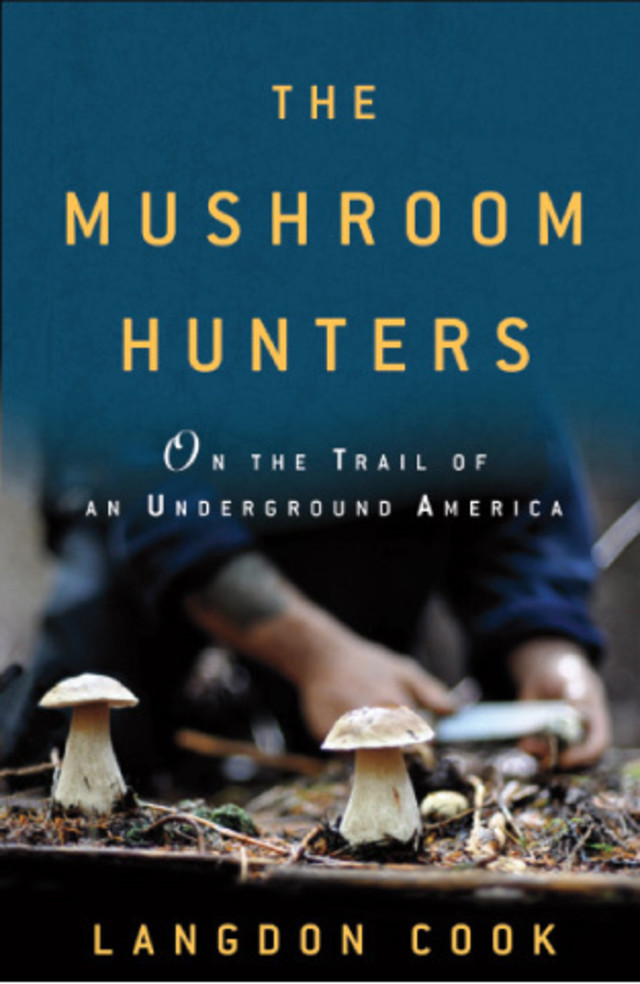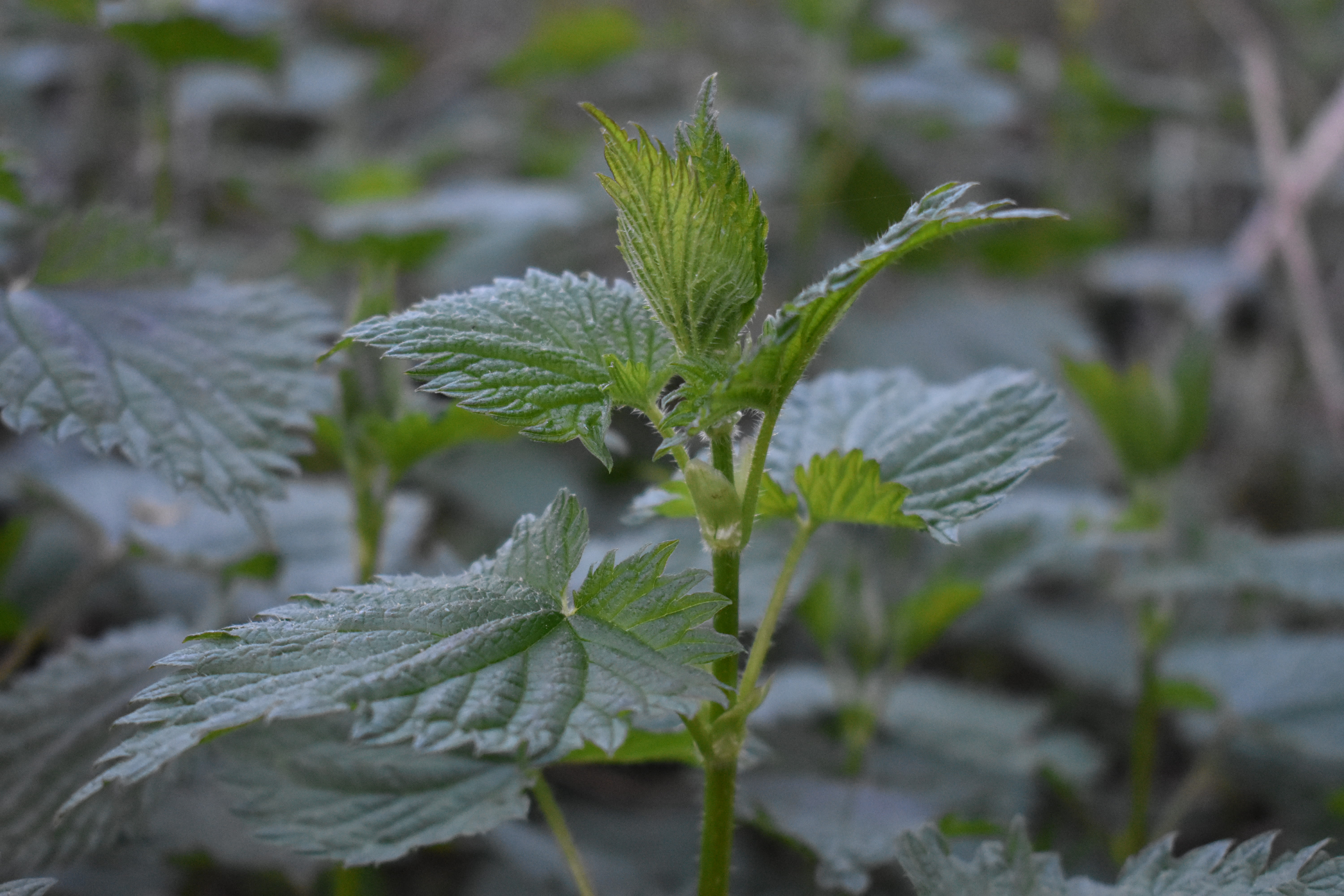Jeremy Faber, Mushroom Hunter

Image: Courtesy Langdon Cook
Jeremy Faber, the owner of Foraged and Found Edibles, is the chief supplier of rare and elusive mushrooms for Seattle’s most carefully sourced restaurants. He has been notoriously secretive when it comes to revealing his prime locations for foraging in Northwest forests, and as such he has been as elusive as the bounty he delivers to our tables. In The Mushroom Hunters, Seattle writer Langdon Cook gets closer to Faber and the secrets of his business than ever before. This excerpt reveals the beginnings of Faber’s obsession with wild edibles, as well as his partnership with one of this city’s seminal interpreters of foraged foods, Christina Choi, who died two years ago of an aneurysm at age 34. —Editor
Like every business with a long-term vision these days, Jeremy Faber’s Foraged and Found Edibles is obsessed with customer service and satisfaction. In Faber’s case, the final arbiter is the restaurant patron or home cook who takes a bite of his product. At a time when so-called USDA-approved organic greens, grown in factory-farm conditions, can become contaminated with E. coli by a pack of feral hogs, many consumers are looking for a purer sort of “all natural” food to grace their tables and impress dinner guests. Found well beyond the fence lines of Big Ag, wild foods are by definition organic, and they offer an authentic taste that can’t be duplicated in domesticity. Faber figures every big city has at least one dealer like himself: a backwoods-savvy merchant in the delicacies of the wild.
Becoming such a woodsman was Faber’s first trick. He was raised on Long Island, where, by his own admission, he got into New York City’s rave scene at a young age and first developed an interest in, shall we say, natural products and all-cash business. When he was 17, his parents sent him to rehab, even though by then his inclination wasn’t so much to indulge in his own product as it was to make money from it. He majored in forestry at the University of Vermont and then transferred to the Culinary Institute of America in Hyde Park, New York. For most of his life he had worked in restaurants—greasy spoons and fast-food joints as a kid, and later at more-upscale places like Perry’s Fish House in Burlington. After graduating from the CIA, he moved West and took a series of restaurant jobs in Seattle, working at such stalwarts as Ray’s Boathouse, Serafina, and the now-defunct Brasa before landing a job at the renowned Herbfarm in the suburbs east of Seattle. There he apprenticed under James Beard Award–winning chef Jerry Traunfeld, who taught Faber how to use wild ingredients in imaginative preparations. The Herbfarm was one of the first restaurants to champion foraged foods in a big way, and it routinely lands on Top 10 lists for the Pacific Northwest’s best eateries. There Faber met one of his best friends, Matt Dillon, before Dillon would go on to make a name for himself with his own restaurants [Sitka and Spruce, the Corson Building, Bar Ferd’nand, Bar Sajor]. He also worked with Christina Choi, another wild-food enthusiast, who had bright, expressive eyes, an infectious smile, and who would become his girlfriend.

Food Finder Faber attracts other forest hunters to his buy stands (as in Sisters, Oregon, above); he displays a fall mushroom (left) found in Raymond, Washington.
Image: Courtesy Langdon Cook
Faber and Choi explored the wilds of Washington together, camping all over the state and experimenting with the little-known foods they found during long hikes through mountains and woods. Meanwhile, Faber worked up to sous chef. All the while he was also running a little grow operation on the side, housed in an attic crawl space above his rental room. Though not much of a dope smoker anymore, he grew pot to satisfy his yearning to work with actual currency. He grew and sold several crops over the course of a few years, until an ex-roommate threatened to rat him out if he didn’t pay hush money. Rather than split profits with the blackmailer, Faber ripped out all his plants and went legit.
At the Herbfarm, he was spending more and more time outdoors. He brought his finds back to the restaurant and incorporated them into dinner specials. Soon he was known as the house forager. In 2001, he and Christina Choi started Foraged and Found Edibles together. In a smallholder echo of the Microsoft and Amazon legends, they used Choi’s garage as the launching pad for their effort to supply the Herbfarm and numerous other Seattle-area restaurants with wild foods. A year later Faber left the Herbfarm altogether to concentrate on his business, while Choi, in time, decided to travel and pursue her own interest in wild foods down a different path. Though Choi’s departure—and the end of their romance with it—gave Faber full control over the fledgling company, Faber himself would continue to refer to Christina Choi as both his best friend and the heart and soul of the business. Choi’s interest was purely culinary and spiritual. She championed wild foods for their unique qualities and also because they were products of nature rather than agriculture. Her cooking, a fusion of her Chinese-Swiss heritage, was forever changing with the seasons and whatever foraged foods were available nearby, and though her financial interest seemed nonexistent, unlike Faber’s, this passion would lead eventually to the opening of Nettletown [now closed], a Seattle lunch spot that could boast quite possibly the highest ratio of wild to conventional food of any restaurant in the country.

A commercial forager’s life is hard on relationships. This was something Faber would learn in the coming years. The money, on the other hand, was steady. Despite the Internet bubble, these were boom years in Seattle. Flush with high-tech capital, the city built a baseball park with a retractable roof, a football stadium, and a new opera house. Swanky restaurants opened in droves in trendy neighborhoods like Belltown and Queen Anne, catering to Seattle’s new breed of young, moneyed professionals who wanted to eat well and to eat local.
From the book, The Mushroom Hunters by Langdon Cook.
Copyright © 2013 by Langdon Cook. Reprinted by arrangement with Ballantine Books, an imprint of the Random House Publishing Group, a division of Random House, Inc. All rights reserved.
Published: September 2013




